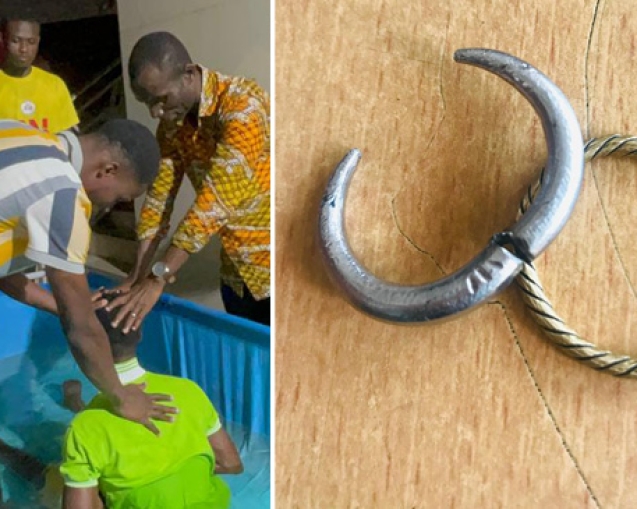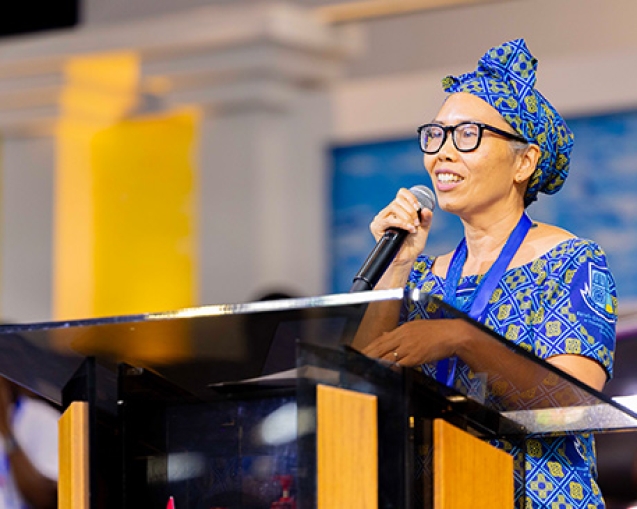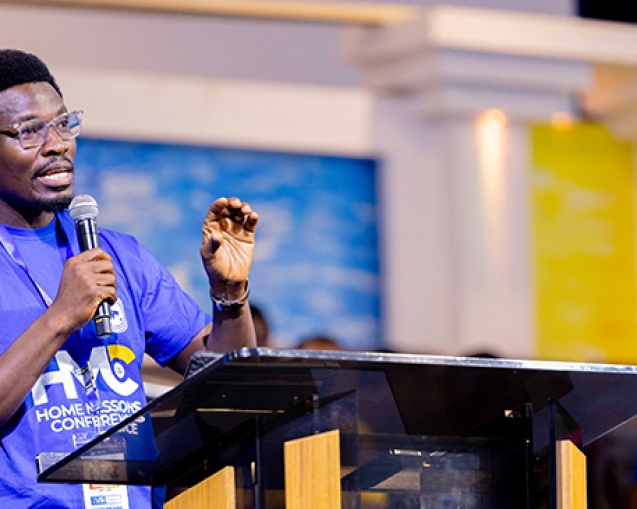Prior to Jesus’ ascension, he foretold that the gospel would leave the frontiers of Jerusalem to Judea, Samaria, and the uttermost parts of the earth. In fulfillment, Philip went down to Samaria and shared the gospel (Acts 8:1-23) where many people were freed from the deception of Simon the Sorcerer, whom they wrongly perceived as the great power of God. Over the years, spreading the gospel to the uttermost parts of the earth has been made possible by the selfless service of missionaries.
In Ghana, many accounts have been given regarding the history of Christian missionary activities. However, the majority of literature link the presence of the first Christian missionaries to the arrival of the Portuguese in the year 1471. Although the Roman Catholic Chaplains of the Portuguese traders and armed forces were to serve as missionaries to the local people in Elmina, their concentration was much on trade and chaplaincy. As a result, the era of missions in the 15th century did not record significant conversion of the local populace.
Later, in the 19th century, Basel/Presbyterian and Wesleyan/Methodist missionaries achieved much success in laying the foundation for the spread of the gospel in Ghana. The Basel mission sent four missionaries, Karl Salbach, Gottlieb Holzwath, Johannes Henke, and Gottlieb Schmidt between the ages of 24 to 27 to the Gold Coast in 1828. Three of them died within eight months while the last, Johannes Henke, died within three years of their arrival. Unfazed by these casualties, they sent three missionaries, one of whom was a medical doctor. Unfortunately, two of them, including the medical doctor, died within three months, depicting a poorer chance of survival than the former. The survivor, Andrea Riis, moved to the hilly outskirt of Akropong, where, together with missionaries he recruited from the West Indies, launched a successful mission. Significantly, the activities of these forerunners from the Catholic, Basel, and Wesleyan missions paved the way for the mission enterprise in the twentieth century.
Thus, in 1937, an Irish missionary, James McKeown, was sent by the Apostolic Church, Bradford, UK to the then Gold Coast (now Ghana) to help a group of believers of the Apostolic Faith in Asamankese, led by one Reverend Peter Anim. After years of hard work filled with schisms, sacrifices, and divine interventions, he founded the Church of Pentecost on August 1, 1962. He is described as a simple man who quickly adapted to living conditions in Ghana. His insistence on building a self-financing, self-propagating, and self-governing church made him build solid structures for the nascent church, which is now found in 151 nations of the world. James McKeown taught the church to be self-reliant without sourcing funds from overseas. He also trained and mentored young people, many of whom became Pastors of the church. On October 1, 1982, James McKeown handed over to the first Chairman of Ghanaian descent, Apostle Fred Stephen Sarfo, and died seven years later on May 4, 1989.
Sowing the seeds of the gospel came with many challenges, casualties, and hostilities. Mainly, tropical diseases like Malaria claimed the lives of many missionaries, thereby slowing down progress of work. As stated earlier, the Basel missionaries experienced major casualties, losing seven missionaries within a few years. Also, but for the timely intervention of a district commissioner, Reverend James McKeown, who took ill six months after his arrival, would have lost his life due to the no-medication doctrine of the Anim-led church.
Furthermore, preaching against practices such as polygamy and human sacrifice brought sharp disputes between the missionaries and some chiefs. In addition, policies like building Christian communities (Salems) were misconstrued as efforts to undermine the authority of parents and traditional rulers. In Ghana, Salem communities were built in places like Akropong, Osu, Abokobi, Peki, Kyebi, Abetifi, Nsaba, and Anum. Under the Salem policy, converts were required to move out of their homes to settle in communities on the outskirts where they were closely monitored by the missionaries. Due to the separation, they did not partake in activities like festivals, wars, and rites of passage sanctioned by the traditional authorities. As a result, some of the local folks resorted to making life uncomfortable for the missionaries, whom they thought had used religion to foment the breaking of ranks by the local populace.
With regards to movement, poor transportation networks hindered their forays into the inland regions. Some had to trek long distances on foot with the assistance of porters and guides. Sadly, some of the porters and aides became disloyal along the line, bringing much loss to the missionaries. Against this backdrop, many of the missionaries restricted their work to the coastal regions, leaving much of the inland regions and northern part of the country unattended.
Despite these challenges, the Christian missionaries did not confine their work only to spreading the gospel. They built schools, cared for the sick, trained artisans, and introduced the local folks to modern methods of farming and new crops like cashew, black pepper, cotton, mango, and ginger. Another significant contribution of the Christian missionaries was the development of literature in the local languages, which facilitated the translation of the Bible into some of the local languages. Specifically, Rev. Johannes Zimmermann in 1858, wrote a grammar of the Ga language, while Rev. J. G. Christaller in 1874 produced a Twi Grammar and Dictionary. The Roman Catholics, who were the first to work among the Fantes, initiated similar works in Fanti and Nzema, while the Evangelical Presbyterian missionaries were the first to develop literature in Ewe.
To the glory of God, the seed sown through the toil, tears, financial sacrifices, and the deployment of human resources amidst the peril of death has borne much fruit.
Currently, Christians constitute 71.3% of the population of Ghana according to the Ghana Statistical Service. The mustard seed has grown to become a ‘towering’ tree with branches serving as a place of refuge for many nations. Commendably, the Church of Pentecost, which started in Ghana, has entered into 151 nations of the world through missions. Aside from bringing salvation to many through the gospel, activities of missionaries have contributed significantly to education, health care delivery, agriculture, and civilization. In view of this, everyone must contribute to keep the torch of missions handed to us burning. Surely, the fire of missions must not die in our generation. Support missions by praying for missionaries, giving in support of missions, and spreading the gospel everywhere. Long live the Great Commission, Long Live the Christian Enterprise, Long Live Missions in the Church of Pentecost.
Written by Pastor Joseph Owusu-Boateng (Traveling Secretary – PENSA-Sunyani Sector)


















